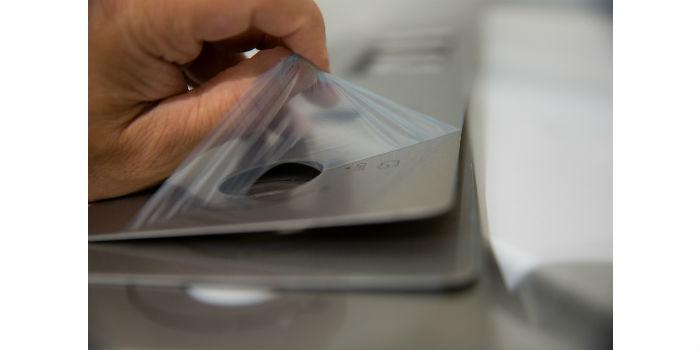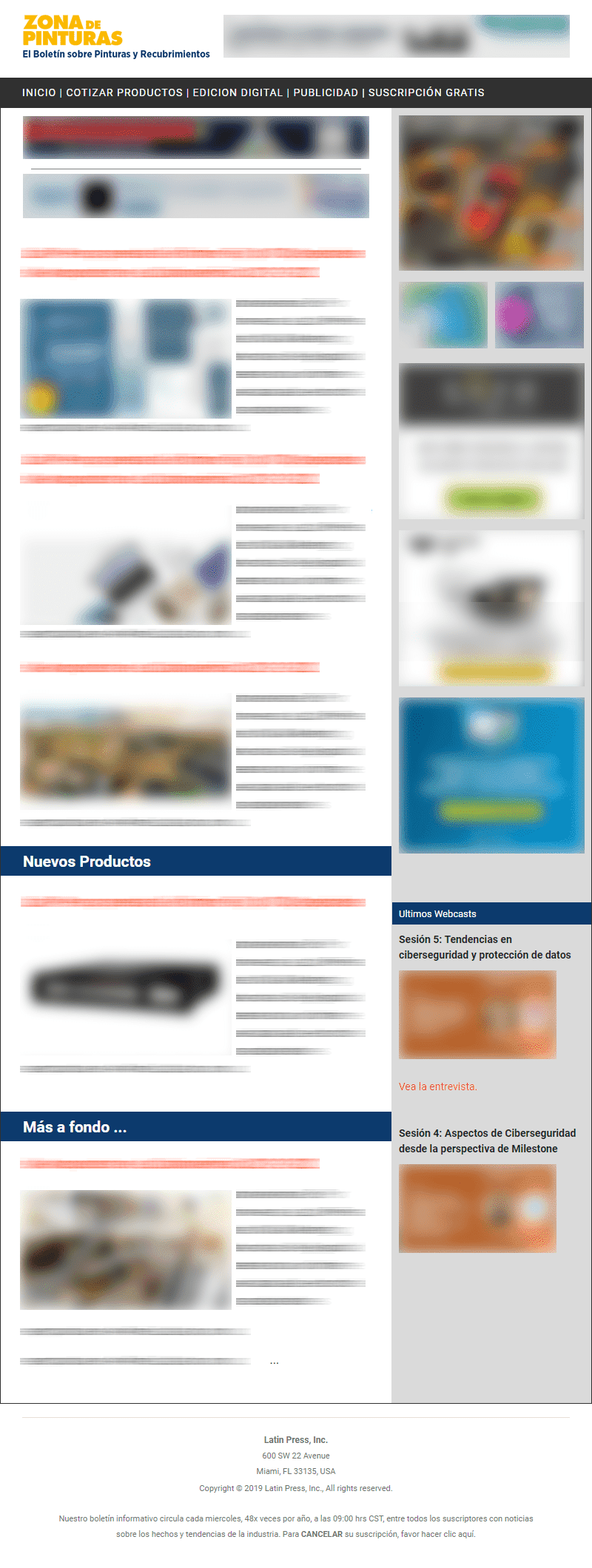 Peelable coatings protect surfaces from shipping and handling damage without requiring an extensive film inventory.
Peelable coatings protect surfaces from shipping and handling damage without requiring an extensive film inventory.
by Unichem*
Temporary protective films are designed to protect everything from cars to appliances, construction products, and household items. Designed to be easily peeled off by the customer, these "peelable" films protect easily damaged surfaces during the manufacturing, shipping, handling and installation operations of the metal after processing.
Traditionally, peelable films have been applied to surfaces manually or through machines such as sheets of film during or after manufacturing. The protective films are coated with a pressure-sensitive adhesive designed to adhere to surfaces while removing cleanly when they are no longer needed.
However, in order to match products of various sizes and characteristics, films must be ordered in various widths and lengths. For uniquely shaped parts or products, temporary protective films can be stamped into a particular shape.
The type and strength of the adhesive in the films should also be considered. Care must be taken to ensure that the films adhere correctly without damaging or creating defects in the integrity, brightness or color of the underlying coating.
"If there are any particles or even a speck of dirt in the film during application or rolling, it can spoil the coating underneath it," says Dan Chin, president of Universal Chemicals & Coatings (Unichem), a custom adhesive and coating formulator. "You also have to make sure that the adhesive doesn't alter the gloss, color, or soften the coating in any way."
For this reason, Chin says that tests should be performed to ensure the compatibility of the adhesive on the back of the film or the peelable liquid that will be applied with the underlying coating.
Given all these factors, the variety of film sizes and the level of adhesion required, means that you must have a significant inventory of these materials, which increases overall costs.
Alternatively, a versatile family of liquid peelable coatings, applied in the same way as color coatings or adhesives on coil processing lines, is helping to speed up processing, eliminate film inventory, and reduce costs. Unlike pre-cut protective films, coatings are applied to any coil width that is required, in any thickness, and in formulations that ensure proper bonding is achieved.
Detachable liquids can be formulated with properties that can range from flexible to rigid, depending on the formulation. In terms of coil processing, these coatings provide a barrier resistant to abrasion, moisture and chemicals.
Liquid coatings, which solidify and form a protective film after heating and processing, are applied on any material, from polished metals to plastics and even other coatings. The technology offers a wide range of adhesion options, which can be adjusted and controlled to meet specific requirements for forming and stamping operations.
"After applying a peelable coating, coil processors and manufacturers can perform any post-processing applications such as die-cutting, bending, and even deep drawing without damaging the surface," Says Chin.
He adds that peelable coatings can be designed with a wide range of capabilities.
"Detachable materials can be formulated to meet the performance standards of very specific applications, whether soft and flexible, or hard and durable," says Chin.
As an example, he points to an increasing use of detachables for construction products.
"After placing a finished coating on a construction product such as siding or roofing, a durable detachable would be placed on top to prevent scratching or spoiling the finish," Says Chin.
The automotive industry also uses detachable elements to protect vehicle surfaces during transportation to ensure they arrive in perfect condition. In such cases, the coatings have been formulated to be sprayed in thicknesses ranging from 0.07 to 0.1 millimeters. In these thicknesses, the peelable coating provides sufficient protection against rocks lifted by trucks and other vehicles on the roads.
According to Chin, in a typical application, a coil processor would apply the color coating in the first stage of the process, and the liquid peelable coating in the second stage.
"The application of the detachable liquid coating often occurs throughout the coil before the coil is cut to specific widths," says Chin. "The coating can also be sprayed on pre-cut sheets or finished parts."
Detachable coatings such as Unichem's UniGuard product, for example, can also be applied to polished metals, metals coated with thermoset coatings, and some polyvinylidene difluoride (PVDF) coatings.
According to Chin, peelable liquids are adding increasing value as an alternative to film sheets in kitchen appliances and construction products (siding, ceilings, garage doors, and ceiling and wall panels).
While such coatings are mainly applied during coil processing, coatings can be applied even using screen printing techniques. The peelable liquid screen printing has been used to apply a detachable coating on the control panels of the appliance. This way, you can coat the precise area that needs protection.
There are a number of technologies available for products that need protection through the use of detachable liquids, so determining the various performance requirements is key to successful application and protection.
* For more information you can contact Unichem email: [email protected] - www.unicheminc.com.

























Leave your comment